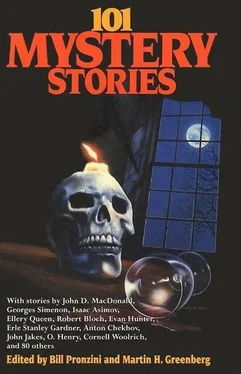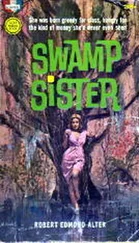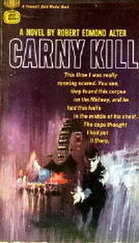Robert Alter - 101 Mystery Stories
Здесь есть возможность читать онлайн «Robert Alter - 101 Mystery Stories» весь текст электронной книги совершенно бесплатно (целиком полную версию без сокращений). В некоторых случаях можно слушать аудио, скачать через торрент в формате fb2 и присутствует краткое содержание. Город: New York, Год выпуска: 1986, ISBN: 1986, Издательство: Avenel Books, Жанр: Детектив, на английском языке. Описание произведения, (предисловие) а так же отзывы посетителей доступны на портале библиотеки ЛибКат.
- Название:101 Mystery Stories
- Автор:
- Издательство:Avenel Books
- Жанр:
- Год:1986
- Город:New York
- ISBN:978-0-517-60361-1
- Рейтинг книги:3 / 5. Голосов: 1
-
Избранное:Добавить в избранное
- Отзывы:
-
Ваша оценка:
- 60
- 1
- 2
- 3
- 4
- 5
101 Mystery Stories: краткое содержание, описание и аннотация
Предлагаем к чтению аннотацию, описание, краткое содержание или предисловие (зависит от того, что написал сам автор книги «101 Mystery Stories»). Если вы не нашли необходимую информацию о книге — напишите в комментариях, мы постараемся отыскать её.
101 Mystery Stories — читать онлайн бесплатно полную книгу (весь текст) целиком
Ниже представлен текст книги, разбитый по страницам. Система сохранения места последней прочитанной страницы, позволяет с удобством читать онлайн бесплатно книгу «101 Mystery Stories», без необходимости каждый раз заново искать на чём Вы остановились. Поставьте закладку, и сможете в любой момент перейти на страницу, на которой закончили чтение.
Интервал:
Закладка:
The Bantu gestured around at the veldt with his closed fist. “The pebble belongs to the earth.”
The Boer’s mouth tightened and the gun’s mouth grew perfectly round. “The pebble belongs to me.”
The Bantu half opened his fist as though to give in. Then, while his two smallest fingers held the mooi klip fast, the other fingers flung the commonplace pebble spinning far. He made his voice shake with rage rather than fear. “If it is yours find it, as I found it.”
The Boer’s gaze followed the false flight and the gun’s mouth dropped.
The Bantu whirled and ran. He remembered a dip in the earth along the back trail. But before the Bantu reached the dip and sank out of sight the Boer had seen through the trick.
The gun spoke.
So swift was the gun’s word that it seemed to the Bantu his flesh heard the gun before his ears. A blow as from a flinty fist struck fire in his side.
Then he was slipping and sliding over the lip of the hollow. He lost his footing and rolled over roughness to the bottom, where dry grass grew and here and there a sizable boulder sunned itself.
He lay half stunned, half catching his breath. Plucking at his breath’s raggedness only raveled it more. He did not want to look at the hole in his side but he looked. He was losing much blood.
To have any time at all, the Bantu knew he must haul himself behind a boulder before the Boer appeared at the rim of the Bantu’s barren little world. He heard the Boer’s shout of rage as he found strength to plug the hole with grass to leave no trail of blood and found will to make for the nearest boulder, the pebble digging into his palm as he thrust himself along.
Rounding the boulder, the Bantu began to stretch his own length and the assegai’s in the boulder’s grudging wedge of shadow, then saw he shared the shade with a snake.
The snake’s tongue flickered.
The Bantu’s mouth pulled against pain in a smile. “Snake, do not waste your poison. I am already dead.”
But the snake did not listen. It coiled to strike.
The Bantu struck first. The assegai spitted the snake and the snake writhed and died.
The Boer’s voice broke into the Bantu’s world. “Kaffir, I know you are down there. You cannot hide from me or outrun my gun. Show yourself and give me the pebble and I will let you go.”
The Bantu tightened his hold on the pebble and smiled at the hurt. The Boer did not have the pebble yet.
But neither was there anywhere to hide the pebble from the Boer. If the Bantu scrabbled a hole, the Boer would spot the digging. If the Bantu cast the pebble away, the Boer would never leave this cup of earth till he had found it.
The Bantu eyed the snake. “Where, oh, snake?”
And the dead snake answered silently.
The Bantu laughed. “Thank you, oh, snake.”
He weighed the pebble on his palm. It looked too big to go down but the Bantu made one last scan of it, put it in his mouth, and swallowed.
The pebble started down, then stuck in his windpipe, blocking all air. The Bantu’s eyes bulged and his throat convulsed. Then the pebble worked its way and went down.
Sooner or later the Boer would know the Bantu had swallowed the pebble and would slit his belly and writhe searching fingers through his slippery guts. The Bantu put his hands over the grass plug. For this plan of the snake’s to work, the Bantu had to hold himself together and hang on to life till the Boer found him.
To hasten the Boer’s coming, the Bantu twisted so that his feet left the boulder’s shade. The Boer would see the movement.
Drumbeat of death, the Boer’s boots trampled dry grass.
Carefully the Boer rounded the boulder. In a sweep the Boer’s glance took in the Bantu and the spitted snake.
The Bantu looked up at the shimmer of heat that was the Boer. He let his hands fall from the wound.
The Boer looked down. The Bantu’s hands lay open and empty. Fresh blood loosened the grass plug from blood that had crusted around the wound and the Boer saw the Bantu had not stuffed the pebble in the wound. The ground ringing the boulder showed no smoothing over. With his foot the Boer rolled the Bantu wound side down. The Bantu’s body had not been hiding anything. The Boer rolled the Bantu back with his foot.
He prodded the Bantu with the mouth of the gun. “Where is the mooi klip? If you have swallowed it and cannot cough it up I will take my hunting knife and slit your belly.”
The Bantu pointed to the snake. Trying to hide the rawness of his throat, he spoke. “What you seek is in the snake’s mouth.”
The Boer narrowed his eyes. “Kaffir, if you are lying, you are just putting off your belly-slitting a little and adding to my anger a lot.”
The Bantu only steadied his pointing finger. “What you seek is in the snake’s mouth.”
The Boer hesitated but a moment. After all, the kaffir lay helpless, eyes glazing, and the snake lay dead. The Boer leaned his gun against the boulder and knelt to probe the snake’s mouth.
Reptiles have lasting reflexes. Even dead, a freshly killed snake will sink its fangs into probing flesh.
The Boer cried out.
After a time all was stillness.
And all is stillness still, but for the wind through the bones.
12
Two-Way Street
Brian Garfield
The body was found along Route 783 just outside the town of Aravaipa. The woman who found it was a Navajo lady; I learned that she and her dogs had been herding a flock of sheep across the road at dawn to beat the morning traffic. She’d roused a dairy rancher and the phone call had been logged in at the Sheriff’s office at 5:44 A.M. I was brought in around noon when one of the Undersheriffs picked me up in a county car; he filled me in on the way to Pete Kyber’s office. “We’ve got a corpse and a witness. Or at least we think he’s a witness.”
“Who’s the victim?”
“Name of Philip Keam. Thirty-something. Reporter for one of the Tucson newspapers.”
“You notified next of kin?”
“Divorced, no children. The parents may be alive — we’re trying to find out.”
Officially the temperature went to 103° Fahrenheit that day, which meant that down along the surface of the plain it was near 140°. The asphalt of the Sheriff’s parking lot was soft underfoot, sucking at my shoes, and I hurried into the air-conditioned saltbox before I might melt. Slipping off the sunglasses I made my way back to the Sheriffs private office.
Pete Kyber was long-jointed and Gary Cooperish: slow-moving and slow-talking but not particularly slow-thinking. His most noticeable feature was his Adam’s apple. Pete was no relation to the redneck stereotype; he was by instinct a conservationist rather than a conservative. How he and I ever got elected to our offices in the rural county still mystified me.
He watched me sit down; he was gloomy. “We got a bloody one, Mike.”
“I’ll have a look on my way out. What’s the story?”
“Bludgeoned to death. With a rock.”
“No fingerprints?”
“On a rock?”
“Who’s this witness you’ve got?”
“Larry Stowe. Just a kid.”
“Would that be Edgar Stowe’s son?”
“Yes.”
Edgar Stowe ran the drugstore in Aravaipa. He didn’t own it — it was a chain store — but he was the manager. His son Larry would be about 22, I calculated; one of my kids had been in the same high-school class. I remembered the Stowe boy coming around the house now and then, but that was five years ago. He’d struck me as an unremarkable kid, towhead and a bit vacuous.
“What’s Larry got to say?”
“We’re having a hard time getting a straight story out of him. You’d better talk to him yourself.”
“All right. First tell me what you’ve got.”
Читать дальшеИнтервал:
Закладка:
Похожие книги на «101 Mystery Stories»
Представляем Вашему вниманию похожие книги на «101 Mystery Stories» списком для выбора. Мы отобрали схожую по названию и смыслу литературу в надежде предоставить читателям больше вариантов отыскать новые, интересные, ещё непрочитанные произведения.
Обсуждение, отзывы о книге «101 Mystery Stories» и просто собственные мнения читателей. Оставьте ваши комментарии, напишите, что Вы думаете о произведении, его смысле или главных героях. Укажите что конкретно понравилось, а что нет, и почему Вы так считаете.












